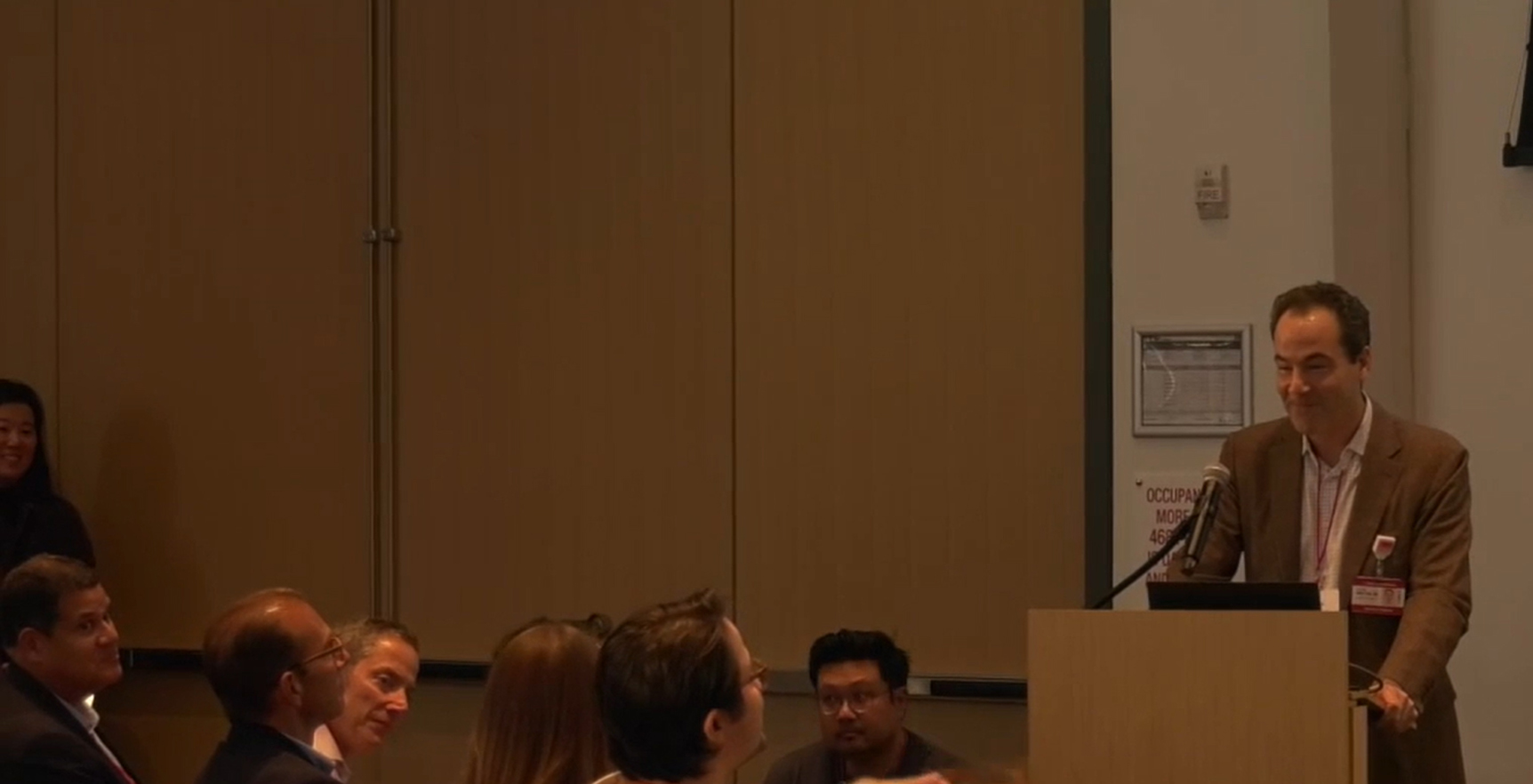
“The network that will make the greatest impact in your career is around you, not above you.”
“Make it a priority to work with people who can teach you something.”
“Try to move products or people around in your company to optimize where they might grow best.”
“Look for the right problem to solve.”
Those were just a few of the words of wisdom shared by Cornell entrepreneurs during Eclectic Convergence 2023, a Nov. 3 conference at Cornell Tech in New York City hosted by Entrepreneurship at Cornell.
Barry J. Beck (’90), founder of Bluemercury and CEO of Evenly Technologies, talked about entrepreneurs as disrupters, those people who see targets that no one can, and have the business savvy to move their ideas forward.
“Especially with AI and the information superhighway right at your fingertips, it really levels the playing field,” he said. “I feel like people think entrepreneurs are these mythological creatures, but they’re just exceedingly good risk managers.”
Jennifer Dulski (’93, MBA ’99), CEO and founder of Rising Team, led participants through an exercise using her product, which allows managers to leverage AI and other tools to develop and support their employees. Reggie Fils-Aimé (’83), retired president and chief operating officer for Nintendo of America, shared stories of the products he helped to launch for Nintendo, Proctor & Gamble and other companies.
The conference also included a pitch competition, in which five startups presented their disruptive technologies, business development and visions for a prize of $5,000. Three of the teams focused on health care-related technologies. Among them was Fesarius Therapeutics, founded by Dr. Jason Spector, chief of the Division of Plastic and Reconstructive Surgery at Weill Cornell Medicine.
Fesarius, established in 2015, was based on DermiSphere, a dermal regeneration template. This innovation strives to be more conducive to cell invasion and neovascularization than the market leading dermal template. Its design helps surgeons to reconstruct the dermis and epidermis, both layers of the skin, in one surgery, which significantly reduces the healing time and decreases the risk of infections.
“This really is a disruptive technology in the field of reconstructive surgery,” said Dr. Spector. “It’s not just using it as a sheet gel. We have a flowable formulation, the same technology with a couple tweaks you can use in a flowable form.”
Cornell Tech graduate student and certified New York State emergency medical technician, Samantha Lee (MEng ’21), won the prize. Lee’s business, Meili Technologies, helps detect health emergencies in commercial vehicles like tractor trailers and then helps to stop the truck, turn on hazard lights and alert emergency squads or fleet managers.
“About 1/3 of drivers have pre-existing conditions that put them at risk of having a health event behind the wheel,” Lee said. Using existing sensors in the vehicle, Meili’s software detects changes that indicate that someone is having a health event.
“The mixture of attendees — from students who travel on early-morning buses from Ithaca to entrepreneurs and investors from both New York City and the West Coast — always makes this event a highlight of our year,” said Zach Shulman (’87, J.D. ’90), director of Entrepreneurship at Cornell. “The connections made at this event help many startups take their next steps.”
A version of this story, authored by Kathy Hovis, writer and podcast host for Entrepreneurship at Cornell, first appeared on the college’s newsroom.
Many Weill Cornell Medicine physicians and scientists maintain relationships and collaborate with external organizations to foster scientific innovation and provide expert guidance. The institution makes these disclosures public to ensure transparency. For this information, see profile for Dr. Jason Spector.

